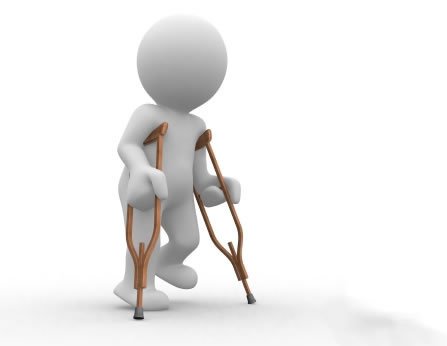|
Sharon Harel, a resident of Yakneam, Israel, is today a Chabad Chassid in the fullest sense. Twenty years ago, however, this was not the case. Although she knew and respected the Chabad movement, she did not observe much of the Jewish tradition.
One day, she suddenly felt heaviness in her left arm. The sensation intensified and soon her arm was completely paralyzed. In panic, Sharon ran to her doctor, but he was stumped by her symptoms, which had come on so suddenly.
A few weeks later, Sharon noticed the same heaviness in her left leg. Within a short time, she was unable to move her leg at all. She was paralyzed on the entire left side of her body.
Sharon underwent countless medical tests and saw numerous doctors. The results were shattering. The doctors told Sharon to make peace with the fact that she would be handicapped for the rest of her life.
Sharon refused to accept this horrible verdict. She had four small children and it was impossible to care for them in her handicapped state. She decided not to give up hope, but to turn to Professor Abramsky, a top neurologist at Hadassah Hospital in Jerusalem. She placed great hope in the doctor's expertise. But after a thorough examination, he, too, told her that there was little hope for her recovery.
Sharon returned home exhausted and heartbroken. When she first came down with the paralysis, her friends had advised her to contact the office of the Lubavitcher Rebbe in Brooklyn for a blessing. Sharon tried to call, but after receiving repeated busy signals, she gave up calling and forgot about the whole issue. Now that the doctors had told her there was no hope, her friends urged her to try again. They suggested that she call at four in the afternoon Israel time, which was early morning in New York. There was a good chance that the line would not be busy then.
"But, Sharon," her friend reminded her, "before calling the Rebbe you should take on a good resolution. This is what the Rebbe advises all those who turn to him for a blessing."
Sharon's response was unexpected. "No! I will not cover my hair!" she shouted.
"Sharon, who said anything about covering your hair? You can take on any resolution you want."
But Sharon faced a deep internal struggle. In her heart, she knew that she had to take on the mitzvah that was most difficult for her - the requirement for a married woman to cover her hair. For a full day, Sharon had mixed feelings. Finally, she made peace with the idea. She decided that no price was too great to pay, to receive the blessing of a miraculous recovery.
At four in the afternoon, Sharon picked up the telephone and called the Rebbe's office. To her surprise, the phone was answered right away.
"Is this the Rebbe?" Sharon asked with excitement.
"No, this is the Rebbe's secretary, Rabbi Groner."
"Tell the Rebbe that I am a young woman with four small children. I have no feeling in my arm and leg!"
Rabbi Groner patiently wrote down her name, her mother's name and her home phone number. "I will call you back with the Rebbe's answer."
The next day was Friday. Sharon's sister came over to help her get the house ready for Shabbat. Suddenly, Sharon called out that she heard a voice praying. Her family members were alarmed; was she losing her mind in addition to her other health problems? Sharon ignored the strange looks, closed her eyes and in her mind's eye, saw the Rebbe giving her his blessing.
A half-hour passed, and Sharon suddenly felt sensations in her foot. She rubbed the foot in disbelief. With effort, she stood up from her chair. It worked! She walked a few steps without her cane.
Her family could not believe their eyes. Before long, her hand started to work again as well. "This is a miracle of the Rebbe!" she called out. "I am well!"
On Sunday, Sharon called Professor Abramsky and told him that the paralysis had disappeared. He was skeptical and told her to come back for more tests. She walked in and he was amazed to see her standing on her own feet.
A year later, Sharon traveled to the Rebbe to thank him personally for the miracle of her return to health.
|

